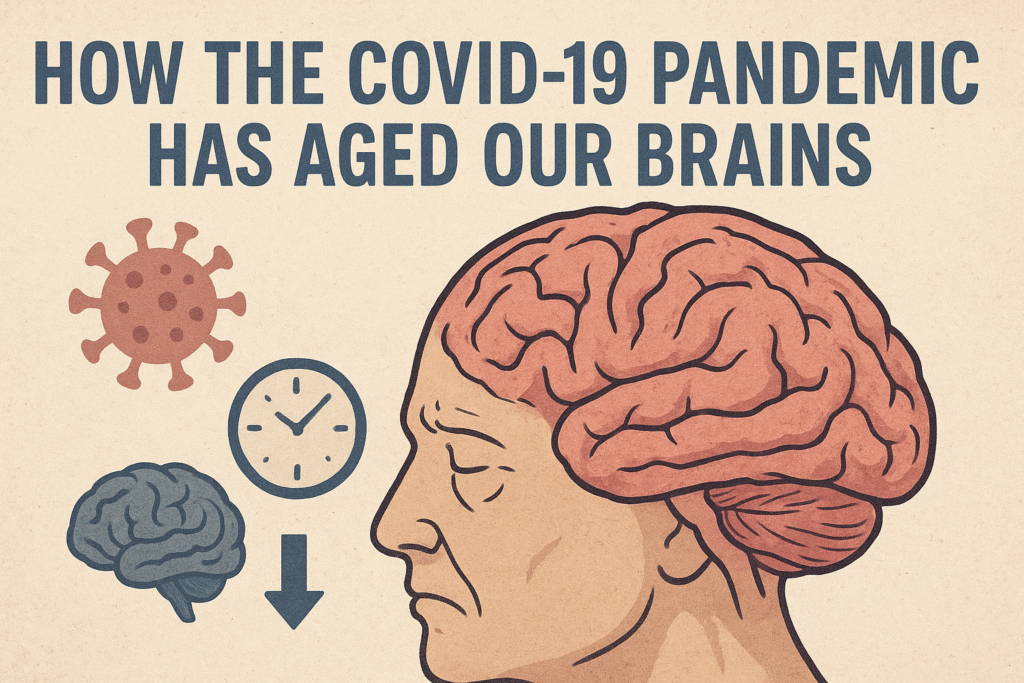When people talk about “pandemic brain,” it’s often in a joking tone—forgetting why you walked into a room, losing focus mid-sentence, or feeling like time is both crawling and flying. But emerging research suggests there’s more than just a meme behind the idea. The COVID-19 pandemic, with its combination of infection risks, prolonged stress, social isolation, and lifestyle disruption, may have actually aged our brains—sometimes in measurable ways.
1. The Stress Factor: Cortisol’s Toll on the Mind
Chronic stress is like rust for the brain. During the pandemic, many lived in a constant state of low-level anxiety—worrying about health, job security, or loved ones. This stress spikes cortisol, which over time can:
-
Shrink the hippocampus (our memory hub)
-
Reduce connections between brain cells
-
Impair learning and emotional regulation
In fact, some studies have shown pandemic-related stress in adolescents mirrored changes typically seen after trauma.
2. Social Isolation and Cognitive Decline
Humans are wired for connection. Months (or years) of reduced in-person contact deprived our brains of the complex stimulation that comes from social interaction. For older adults, this lack of engagement can accelerate cognitive decline, similar to aging the brain by several years.
3. Sleep Disruption: A Silent Accelerant
Lockdowns, work-from-home schedules, and anxiety disrupted sleep for millions. Poor sleep:
-
Weakens memory consolidation
-
Reduces brain detoxification (via the glymphatic system)
-
Speeds up the buildup of harmful proteins linked to Alzheimer’s
It’s a bit like skipping nightly maintenance on a machine—you don’t notice right away, but the wear and tear adds up.
4. Long COVID and Direct Neurological Effects
For some, COVID-19 itself may be the culprit. Long COVID symptoms—brain fog, memory lapses, attention problems—suggest possible inflammation, microclotting, or damage to blood vessels in the brain. MRI studies have even shown volume loss in certain brain regions post-infection.
5. Reclaiming Our Cognitive Vitality
The good news: the brain is resilient and adaptable. Neuroplasticity allows us to regain ground with the right habits:
-
Move daily – Exercise boosts blood flow and growth factors for neurons.
-
Reconnect – Even short, meaningful social interactions stimulate brain circuits.
-
Prioritize sleep – Protect your nightly 7–9 hours like a sacred appointment.
-
Challenge your mind – Learn a skill, take up a hobby, or solve puzzles.
-
Manage stress – Mindfulness, breathing exercises, or nature walks can help keep cortisol in check.
